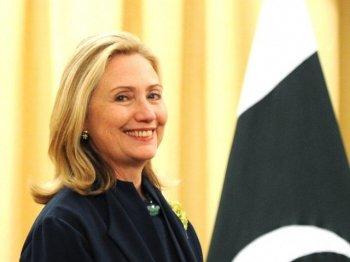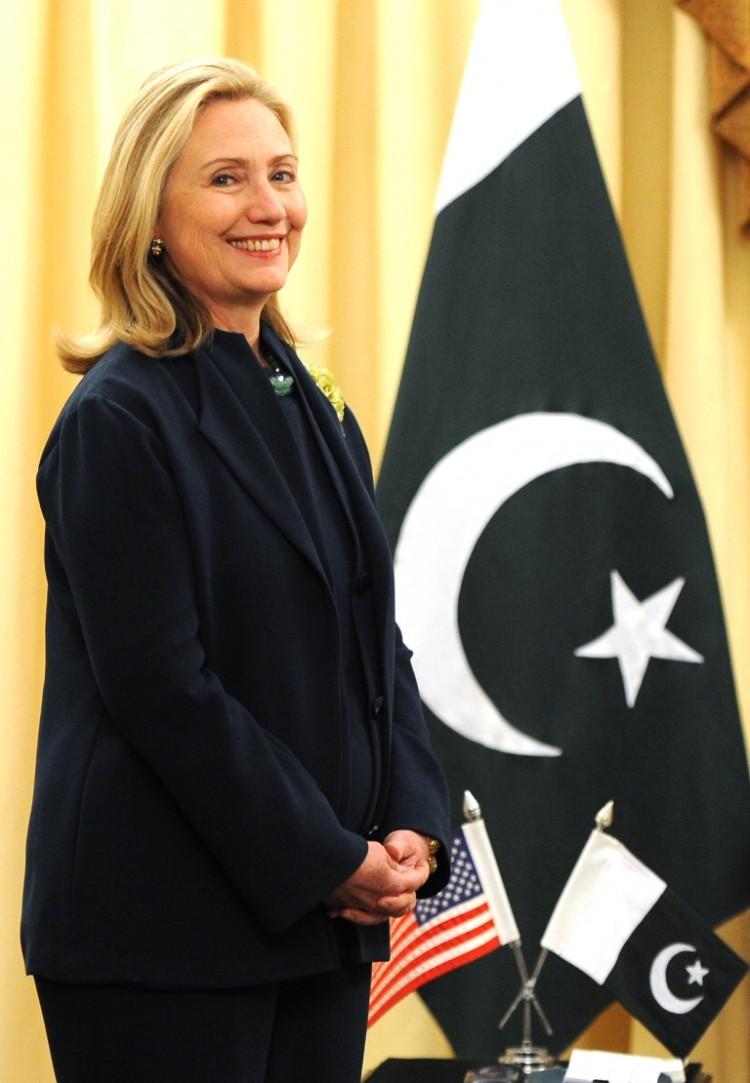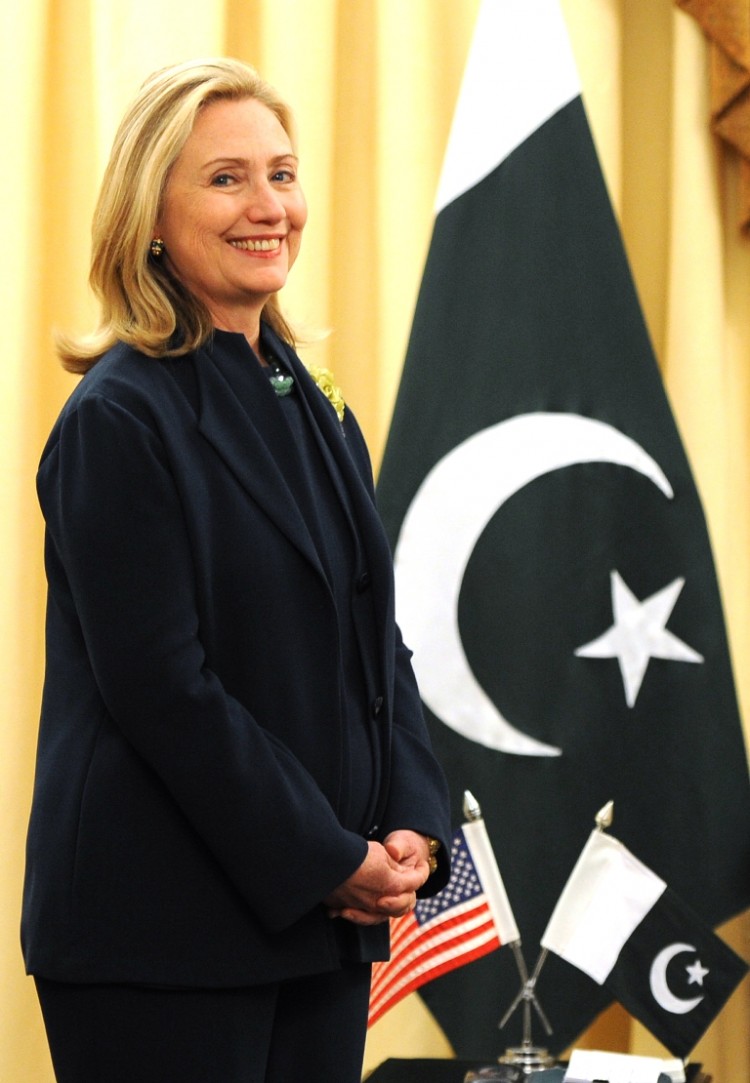Clinton Presses Pakistan on Terrorism
U.S. Secretary of State Hillary Clinton reiterated a call on Pakistan to attack Taliban and Haqqani enclaves in North Waziristan.

U.S. Secretary of State Hillary Clinton smiles as she waits for Pakistan's Prime Minister Yousuf Raza Gilani in Islamabad on October 20, 2011. Aamir Qureshi/Afp/Getty Images
|Updated:





